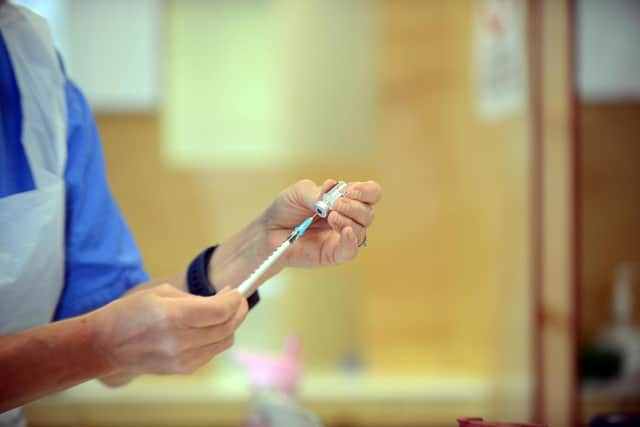Covid Scotland: Large-scale study shows risk of clots after vaccine far lower than with Covid
The findings of what is believed to be the largest study on vaccine side effects to date, published in the British Medical Journal, came a day after an inquest heard that an award-winning BBC radio presenter died due to complications of the AstraZeneca vaccination.
Lisa Shaw died aged 44 in May, just over three weeks after she had her first dose.
Advertisement
Hide AdAdvertisement
Hide AdThe coroner said she had developed a vaccine-induced thrombosis and thrombocytopenia, which was described as “a rare and aggressive complication associated with the AstraZeneca vaccine, which was the underlying cause of her death”.
But University of Oxford professor Julia Hippisley-Cox said while such a death is “very sad”, any potential risks of the vaccine compared with Covid-19 infection must be put into context.
She told BBC Radio 4’s Today programme: “It’s very sad, and condolences to the family of Lisa.
“But to put it in context, these are very rare cases, and the vast majority of patients will be absolutely fine with these vaccines.”
An expert, who was not involved in the research but who is a member of the Scientific Pandemic Influenza Group on Modelling (Spi-M) which advises the Government, said there will be always be some “tragic cases”, but it is “so much more risky to catch Covid”.


Dr Mike Tildesley said he hoped the new study, which involved millions of people, “maintains the trust in the vaccines going forward”.
He told BBC Breakfast: “I think it is about putting those risks into context.
“There are always going to be the tragic cases like Lisa unfortunately, but it still doesn’t mean that actually the risks of taking the vaccine are high, it is still so much more risky to catch Covid and develop a blood clot via that route.”
Advertisement
Hide AdAdvertisement
Hide AdResearchers said their work is the first to compare the AstraZeneca and Pfizer vaccines with risks from Covid-19 on such a large scale.
The new research looked at more than 29 million people aged 16 or older who had a first dose of either vaccine in England between December and April.
Their findings suggest the risk of thrombocytopenia, a condition where the patient has a low count of cells, known as platelets, that help the blood clot, in someone with coronavirus is almost nine times higher than in someone who has had one dose of the AstraZeneca jab.
Professor Aziz Sheikh, one of those involved in the study, said the increased risk of thrombocytopenia seen in their work is similar to other commonly used vaccines in the UK, such as the flu jab.
They estimated that in 10 million people vaccinated with the AstraZeneca jab, there would be 107 additional cases of thrombocytopenia in the 28 days post-vaccination, compared with 934 in people with the virus.
Prof Sheikh, director of the Usher Institute at the University of Edinburgh, said the study is important in “contextualising” safety findings “when compared with the risks if you get the infection” which he said other studies have not done to date.
A message from the Editor:Thank you for reading this article. We're more reliant on your support than ever as the shift in consumer habits brought about by coronavirus impacts our advertisers.
If you haven't already, please consider supporting our trusted, fact-checked journalism by taking out a digital subscription.
Comments
Want to join the conversation? Please or to comment on this article.
